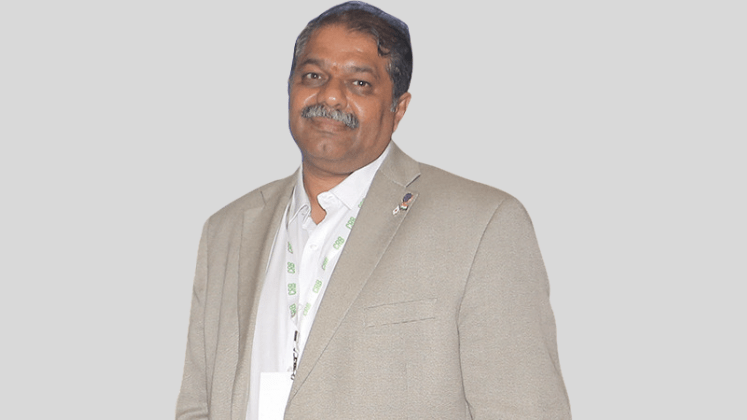
Discussions around sustainability have been at their peak recently as global leaders reiterated their commitment to the environment at COP27. And for India, the current scenario is more important than ever as India assumes G20 Presidency for one year from December 2022. It is an opportunity for India and Global South Nations to lead the discourse on sustainability and inclusivity as G-20 is well placed to demonstrate collaboration and innovations in global supply chains. Piyush Goyal, Union Minister of Textiles, Commerce and Industries has also insisted to use this opportunity to showcase the potential of the textile sector in G20. Focusing on this and many other aspects of sustainability, the recently concluded 9th India and Sustainability Standards (ISS): International Dialogues & Conference at Delhi delved into several key issues. Many global stakeholders appreciated India’s top leadership for the initiatives taken to protect the environment, and at the same time, it was also reiterated that the situation is like now or never and all of us have to work more speedily, more responsibly, inclusively and with an ever-growing thrust on technology.
The G20’s finance track focus areas involve sustainable finance and financial inclusion. And sustainable finance can accelerate growth as global banks to Indian Government institutes like the Small Industries Development Bank of India (SIDBI) are active in this direction. During the event, experts like Dibirath Sen, MD & Head of Global Banking, North India Lead for Sustainable Finance, HSBC India; George Gray, Chief Economist and Head, Strategic Policy Engagement, UNDP shared interesting thoughts on sustainable financing.

“Buyers who are not sourcing from Jaipur, should explore this cluster to know how we are active on the sustainability front. I also urge that senior leaders of the apparel industry should come forward to support women entrepreneurship in trade. It will also help the industry to have more family-friendly policies.” Aseem Singla, Association of Garment Exporters Sitapura, (AGES), Jaipur
The leading banks also see the major projects from an ESG perspective before clearing them as banks have ESG lending policies. Still capital cost for sustainable financing is very high and there is a dire need to bring it down. At the same time, FDI in sustainable financing is also less. RBI’s discussion papers on climate risk and sustainable finance also highlighted that there is a growing need to sensitise India’s financial sector about the importance and benefits of green finance with special emphasis on capacity building and creating awareness of climate risk and sustainable finance to tackle the challenges posed by climate change.
On the grass route level, SIDBI is active with initiatives like Swavalamban Challenge Fund (SCF) with Green Bharat as the prioritised theme since the focus of the fund is on innovative projects addressing green, clean or efficient climate change. Organisations like Mann Deshi Mahila Sahakari Bank are adding value to sustainability by supporting women.

Along with a few initiatives, we are motivating our vendors to have thrust on women worker promotion like from operator to being designated as a supervisor or even to a more higher post. Training is an important aspect of this process. Every step for women workers’ empowerment matter a lot, be it the distribution of iron tablets or efforts for their financial literacy. Peusha Kapur, Business Manager, Lindex India
Jayant Sinha, MP and Chairperson, Parliamentary Standing Committee on Finance, Government of India not only emphasised on the critical scenarios of sustainability and its correlation with the overall development, but also insisted that higher investment is required for sustainable initiatives. He gave a detailed and eye-opening presentation.
Rajeev Saxena, Joint Secretary, Ministry of Textiles shared that there is no dearth of money for sustainability-related research projects while Payal Jain, Fashion Designer and Sustainability Crusader suggested that there can be some relief in GST on sustainable apparel so that all stakeholders of this segment can get more mileage. Speakers also highlighted that by focusing more on sustainability, fashion designing will be more economical.
Dr. Naresh Tyagi, Chief Sustainability Officer, Aditya Birla Fashion and Retail shared how the company saved the electricity bills of its Pantaloons stores more than the target. “We put ESG practices in whatever brands we acquired, no matter if it is first generation or legacy brands.”
It was also stressed that India is lacking on R&D front when it comes to sustainability, especially for material innovation and sometimes investors don’t have a deep understanding of technology which refrains them from investing in such technologies. Lakshmi Poti, Senior Programme Manager, Materials, Laudes Foundation was of the view that integration is a must for having more R&D in sustainability and diverse stakeholders should come on one platform for this.

Workers’ opinions should get space in the formation of Family Friendly Policies (FFPs) and the need of workers can be different even if they are working in nearby factories and their background is similar. Some of the factories are doing a good job to promote women workers and enhance their skills as one of the factories in the South has almost 8 women machine mechanics. Sridhar Rajagopal, MD, Aagna- REDEFINE
Stakeholders unanimously agreed that in apparel factories, more family-friendly policies are required and not only women, even men workers need to be involved in this process. Interestingly few of the factories have some liberty for women regarding their attendance in the morning so that they can avail some comfort to support their family. Similarly, some factories have a policy of no overtime for women. It gives more time to women for themselves and their families.
The experts from the cotton segment insisted on gap analysis about the chemical and water uses of growing cotton and the thrust required on mechanical harvesting for higher productivity, especially as cotton production is less water-consuming in a few other countries. There is a need for more Farmer Producing Companies (FPCs) to do proper marketing of cotton.
The issue of business and human rights was also discussed prominently in the conference and it was insisted that the certification programmes regarding human rights need to be relooked at as they are not able to deliver impact. One of the strong views was that certification programmes need to work with law enforcement agencies. Experts suggested that buying community should not limit itself till ensuring that its supply chain is child labour-free and they should also increase efforts towards the education of children in their sourcing destinations. To strengthen human rights across the supply chain, various industries can work together and support each other with their own strengths.






